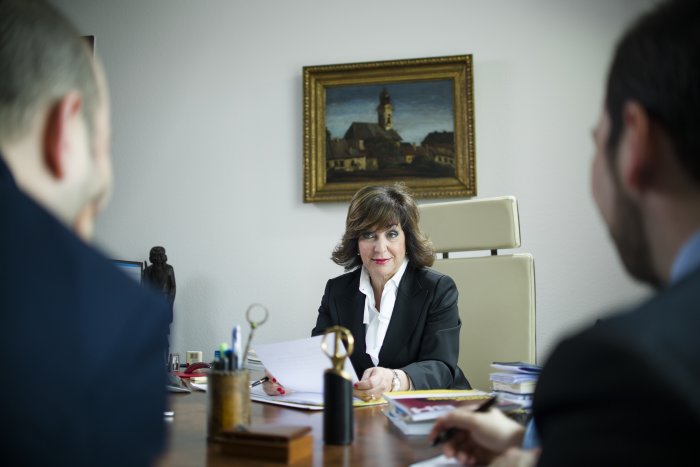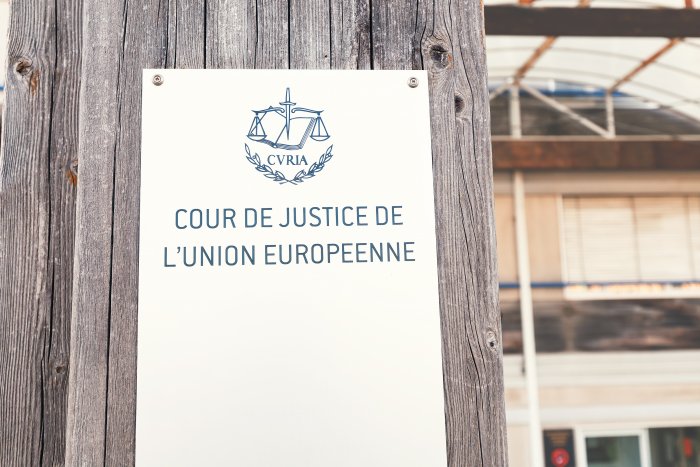Celebrating 50 Years of Intellectual Property Protection

Boasting clients such as Ernő Rubik, Hungarian law firm SBGK has earned its reputation as the intellectual property law firm in Hungary. With SBGK celebrating its 50th anniversary this year, the Budapest Business Journal talked to the managing partner of the firm, Katalin Szamosi, about the past and the present.
Dr. Katalin Szamosi, managing partner.
BBJ: The roots of this law firm, which celebrates its 50th anniversary this year, is intellectual property law. In what ways does this area of law differ from others?
Katalin Szamosi: The basis of the cooperation is that, on one hand, intellectual property must be protected – there are legal ways to do that, including patent, trade mark applications, identification of IP – and then comes enforcement of rights. Without having protection, no legal action can be taken against unlawful use of those rights. The founders of the firm recognized the benefits of patent attorneys and lawyers working together, as during the creation of protection, which is mainly a technical task, legal considerations must be incorporated as well so that in the future rights could be used and protected properly.
The protection of intellectual property requires much more creativity and interaction than corporate law, where lawyers are tied by the strict legislative environment. What makes this type of law different and more challenging than other fields is that it needs a more complex approach and a more versatile knowledge. We need to be familiar with the market, clients expect us to offer advice on how to, say, enforce best license fees. It also requires a business mindset. We need to be able to understand the essence of the work, be it a machine or a piece of writing, and find out what is innovative about it. I believe this is a very nice field of law where by no means one has to deal with routine tasks.
BBJ: Established law firms tend to have this image of being highly hierarchic and traditional. Is it true for SBGK, or have you moved away from this structure?
KS: We are a traditional law firm in terms of structure. There is hierarchy in the way one can get ahead from junior associate to senior partnership; all new colleagues are presented these options when they join the firm. We train almost exclusively all our successors so that the knowledge we provide them with would contribute to the prestige of this law firm. This also means that the knowledge necessary for this area of law can only be acquired through practice, by consulting with clients and studying cases. There is some basic training at university but most of it is picked up on the job. In fact, many of our current competitors were trained by us, when they worked for this law firm.
BBJ: Does this traditional approach apply to the way you handle clients as well?
KS: Client handling policies have changed a great deal since I was an associate. Back then it was the head of the firm who met with clients. Today, we work in teams and clients get to meet with all members of the team. We also involve young associates/lawyers in the process and they can communicate with the clients as well. We have recognized that young members of startups prefer to be in touch with someone that speaks the same language and our young colleagues get in tune with them easily.
BBJ: You also have some long-standing relationship with famous clients such as Ernő Rubik. What kind of work does a cooperation with a client like him entail?
KS: When an invention as big as this outgrows its creator, the use of rights is coordinated through international networks, and us lawyers get detached from the creator. Of course, I know him in person, but today we work for Rubik’s Brand Ltd. Our job is to ensure the protection of rights on a daily basis.
BBJ: How has the composition of your clients changed over the years?
KS: Being a private law firm during socialist times, which dealt with IP and had a foreign currency account, was a rarity. As a result, our firm covered most foreign assignments. This was a huge achievement and created trust in foreign clients: with no competitors it was a golden age for IP lawyers. Even when the economic structure changed, we could maintain this position as international law firms that entered the Hungarian market later focused more on company law. More recently, we have many Hungarian clients, either subsidies of multinational firms interested in our competition or IP law experience, or Hungarian enterprises that have grown substantially in the past years.
A less positive experience is that Hungarian inventors have not been as active lately as they used to be; there are not too many patent applications. This is, in part, the result of neglecting the need for innovation. Small enterprises, which need financing the most, may see some improvement as the government is now committed to support them. Individual inventors have been replaced by startups, but tend to involve capital at a fairly early stage, which leads to investors setting the directions of protection applications, often taking place abroad.
BBJ: Have you been able to shape or contribute to the legislation process for IP?
KS: Being in the “frontline”, we are the first to hear about the issues of the market. But we can only get involved in the process through professional organizations for IP. It is these bodies through which we can impact the legislation process or share our thoughts and experience. These organizations often invite law firms to form an opinion about a new law in the making and in my experience they tend to listen to our suggestions.
SUPPORT THE BUDAPEST BUSINESS JOURNAL
Producing journalism that is worthy of the name is a costly business. For 27 years, the publishers, editors and reporters of the Budapest Business Journal have striven to bring you business news that works, information that you can trust, that is factual, accurate and presented without fear or favor.
Newspaper organizations across the globe have struggled to find a business model that allows them to continue to excel, without compromising their ability to perform. Most recently, some have experimented with the idea of involving their most important stakeholders, their readers.
We would like to offer that same opportunity to our readers. We would like to invite you to help us deliver the quality business journalism you require. Hit our Support the BBJ button and you can choose the how much and how often you send us your contributions.







